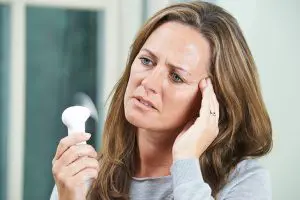Unprotected intercourse, also known as sex without the use of condoms or other barrier methods, can put you at risk of sexually transmitted infections (STIs) and unintended pregnancies. While prevention is always the best approach, accidents can happen. In this blog, we will discuss what to do after unprotected intercourse, including important factors like emergency contraception, the relevance of timing, potential side effects, when to consult a doctor, and the significance of practising safe sex.
What to do after you have unprotected intercourse?
01. Emergency Contraception:
Emergency contraception, also commonly referred to as the ‘morning-after pill,’ is an effective means of preventing pregnancy when used correctly and in a timely manner after unprotected intercourse. It can be obtained over-the-counter at most pharmacies without a prescription. There are two types:
A. Hormonal Emergency Contraception:
One of the most popular options is a high-dose oral contraceptive pill known as levonorgestrel. It can be taken up to 72 hours (or even up to 120 hours, although efficacy decreases) after unprotected sex. However, it is essential to understand that the sooner you take it, the more effective it will be.
B. Copper IUD:
Alternatively, a copper intrauterine device (IUD) can also be inserted by a healthcare professional up to five days post-unprotected intercourse. Copper acts as a spermicide, preventing fertilization. Compared to the oral pill, this method has the added benefit of providing long-term contraception.
02. Side-Effects:
Emergency contraception may cause some side effects, though they usually subside within a few days. Common side effects include nausea, mild abdominal pain, fatigue, breast tenderness, and changes in menstrual bleeding patterns. If these symptoms persist or worsen, it is advisable to consult a healthcare professional. Moreover, research says it can cause a life-threatening complication called ectopic pregnancy if taken without proper consultation with a doctor.
03. When to Seek a Doctor:
While emergency contraception is widely accessible, consulting a healthcare professional is recommended after unprotected intercourse. A doctor can provide reassurance, answer any questions, provide accurate information, perform necessary STI testing, and offer appropriate advice on preventing future occurrences.
04. Safe Sex Practices:
Preventing unwanted pregnancies and STIs is best achieved through practising safe sex consistently. Safe sex involves:
A. Condom Usage:
Using condoms correctly and consistently during intercourse significantly reduces the risk of both pregnancy and STIs.
B. Regular STI Testing:
It is important to undergo regular STI screenings, especially if you engage in unprotected intercourse or have multiple sexual partners. This helps detect, treat, and prevent the spread of infections.
C. Establishing Open Communication:
Ensure that communication regarding sexual health is open and honest between you and your partner. This includes discussing contraceptive methods, STI testing, and the status of previous partners.
Concluding Thoughts:
Unprotected intercourse can happen unexpectedly, but it is crucial to take immediate action and prioritize your sexual health. Emergency contraception provides a timely solution to reduce the risk of unintended pregnancies, while measures such as regular STI testing and safe sex practices can prevent various infections. Remember, when it comes to your well-being, proactive precaution is key.
In conclusion, by being aware of the available emergency contraception methods, understanding their potential side effects, seeking medical advice promptly, and emphasizing the importance of safe sex practices, you can take control of your sexual health following unprotected intercourse.
Looking for more information on this? Reach out to Dr. Amrita Saha, the best Obstetrician & Gynecologist in Kanpur, Uttar Pradesh.




